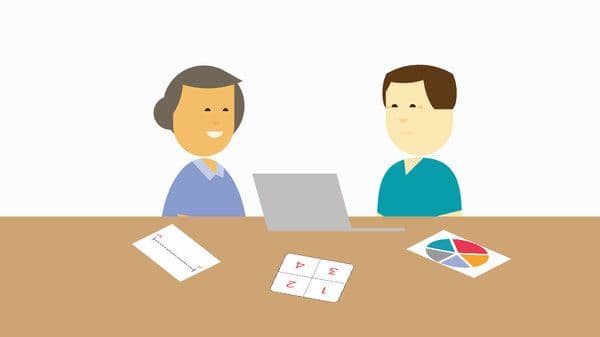Some tools from previous versions of the Ida website are currently missing from this page. If you‘re looking for a tool that isn‘t available here, please visit the Ida Learning Hall, where you‘ll find the relevant course containing the content for the legacy Ida tool you need.
Tools
Tinnitus Thermometer
Start a discussion with your client about their tinnitus using the tinnitus thermometer
DownloadA Patient Journey
Maps the typical stages a person goes through from before they recognize their hearing loss until they learn to manage it. It gives students and clinicians a better understanding of their clients’ experiences and their path to rehabilitation.
Target audience:
Professionals, educators, students
DownloadReflective Journal
Provides a structure for HCPs/students to reflect on their clinical practice and help them understand and improve own behavior.
Target audience:
Professionals, students
DownloadGroup Aural Rehabilitation
Enable patients to learn from and with other patients.
Target audience:
Professionals
DownloadDilemma Game
Allows HCPs to reflect on clinical dilemmas and discuss possible solutions with colleagues.
Target audience:
Professionals
DownloadLiving Well
Enable patients to identify & describe important / challenging comms situations and create a shared understanding with HCP that can enable joint decisions about most helpful intervention.
Target audience:
Professionals
DownloadMy World
Enable child to tell/demonstrate their daily experience of HL and communication in key environments so that appropriate interventions can be put in place and child can learn to problem solve and develop self-efficacy.
Target audience:
Professionals
DownloadMy Turn to Talk for parents
Enable parents to reflect on child's needs and challenges and to formulate key questions ahead of appointments
Target audience:
Patients
DownloadTelecare (adults): Why improve my hearing
Enable patients to reflect on the pros and cons of getting amplification before appointments so that they are more ready to make a decision if the hearing test turns out positive
Target audience:
Patients
DownloadLiving Well Teens and Tweens
Tool helps teens/tweens reflect on daily communication (challenges) and identify situations where it would be beneficial to hear/communicate better
Target audience:
Patients
DownloadGrowing up with hearing loss
Helps children and parents to prepare for upcoming transitions.
Target audience:
Patients
DownloadTinnitus Tools
Enables professionals to discuss a patient's tinnitus and their prospects with them in a empathic way that gives hope
Target audience:
Patients
DownloadGPS
Help couples to identify challenges and define shared communication goals + measures for improvement
Target audience:
Professionals
Download
